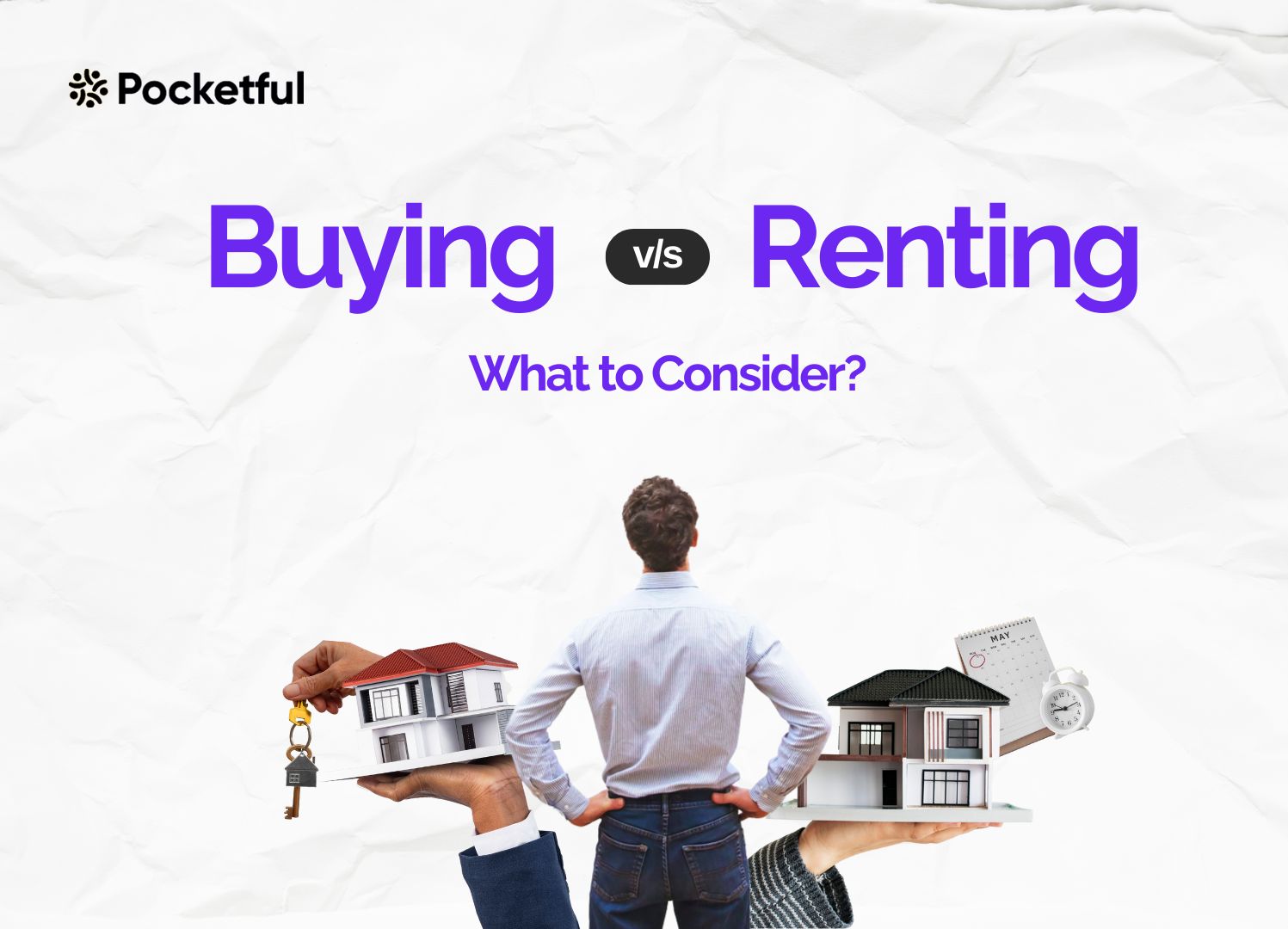| Type | Description | Contributor | Date |
|---|---|---|---|
| Post created | Pocketful Team | May-22-24 | |
| Add internal links | Nisha | Feb-18-25 | |
| Add internal links | Nisha | Feb-18-25 |
Read Next
- SEBI Action on Jane Street: Impact on Indian Markets
- What is Personal Finance?
- Military Wealth Management: Strategies for Growing and Preserving Your Assets
- India’s Republic Day 2025: Honoring the Nation’s Defense Achievements
- 10 Essential Financial Planning Tips for Military Members
- How Do You Apply for PAN 2.0 Online and Get It on Your Email ID?
- 10 Best YouTube Channels for Stock Market in India
- LTP in Stock Market: Meaning, Full Form, Strategy and Calculation
- 15 Best Stock Market Movies & Web Series to Watch
- Why Do We Pay Taxes to the Government?
- What is Profit After Tax & How to Calculate It?
- Budget 2024: Explainer On Changes In SIP Taxation
- Budget 2024: F&O Trading Gets More Expensive?
- Budget 2024-25: How Will New Tax Slabs Benefit The Middle Class?
- Semiconductor Industry in India
- What is National Company Law Tribunal?
- What is Capital Gains Tax in India?
- KYC Regulations Update: Comprehensive Guide
- National Pension System (NPS): Should You Invest?
- Sources of Revenue and Expenditures of the Government of India
- Blog
- buying vs renting which is the better choice
Buying vs Renting: Which Is The Better Choice?

The majority of people in India live in rented homes, yet many aspire to own their own homes someday. They start saving early in their careers or seek home loans to make this dream a reality. However, due to the interest costs associated with these loans, they often postpone their plans and continue with renting.
Now the question is buying your dream house worth it? In this blog, we will discuss whether you should rent or purchase a home.
Buying a House
Purchasing a home is like realizing a dream. It is where you raise your family, create memories, and take pride in owning it. However, nowadays, the cost of buying your dream home can burn a big hole in your wallet. In India, it is common to assume that a home is a sign of well-being and stability within the family.
Pros of Buying a House

- Building an Asset – The amount that you will be using for paying rent can be utilized towards paying some part of the home loan EMI and it will create an asset for life.
- Tax Benefit – If you have a home loan, you can claim a deduction of up to INR 2 lakhs on the interest paid under section 24 for a self-occupied house and INR 1.5 lakhs under section 80C on the principal amount.
- Permanent Resident – You do not need to worry about moving houses if the landlord wants you to leave, as you are the proud owner of your own home.
- Emotional Security – Having your own house provides you with mental peace and stability as you can keep it as you want.
Cons of Buying a House
- Expensive – Buying a house can be costlier than renting a house in most of the cases, as the down payment to purchase the house is very high. Along with this, you will have to bear the cost of monthly EMI.
- Illiquid Asset – Real estate is often considered the most illiquid form of asset, which means if you need money, you cannot immediately sell your house.
- Other expenses – If you purchase a house, you will be piled up with the EMI burden along with it; you will have to pay additional costs such as house taxes, water taxes, maintenance costs, etc.
- Relocation – If you are looking to relocate to a newer location or you are transferred to some other location, then in that case it will get difficult for you to sell your house and shift to another house.
Read Also: Which is Better: Fixed Deposit or Residential Property Investment
Renting a House

It means living in a home owned by someone else and giving the landlord a monthly rent payment. The owner of the property will give you the house in exchange for rent through a formal agreement that specifies the monthly rent and the length of time he/she will rent the property to you.
A house’s suitability for rental depends on a variety of aspects, including the number of bedrooms, preferred location, amenities, and budget.
Pros of Renting a house
- Lower financial burden – Paying monthly rent will have less impact on your pocket as rent will be lower than your home EMIs.
- Down Payment – If you are going for a rented house, then you are not required to make any large down payments initially. In renting, you are just required to provide only a security deposit which can vary from 1 – 6 months.
- No additional cost – While living in a rented house, you don’t need to worry about paying property taxes, repair bills, maintenance costs, etc.
- Easy to relocate – In case if you are into such kind of jobs in which transfer is frequent then relocating is much easier in the case of a rented house.
- Flexibility of location – You can easily decide where do you want to live depending on proximity to your workplace or school, reducing your transportation costs.
Cons of Renting a house
- Rise in Rent – The landlords generally increase the rent on an annual basis, but they can do so anytime in between.
- No Tax Benefits – Paying rent will not fetch you any tax benefits. However, one can claim an HRA deduction.
- Expense after retirement – If you are not able to buy a house while you are in your earning stage of life, then you might face a financial crunch after retirement as you will not have any source of income.
- No Modifications – Even if you love to decorate your house, then you have no choice but to make any structural change without the approval of the landlord.
- No emotional security – Owning your own home provides peace of mind and stability, freeing you from the worries of a landlord potentially asking you to move out. If you rent a house, you’ll miss this peace.
Tax Benefit of Housing Loan

- Deduction of Principal Amount Repayment – You can deduct up to INR 1.5 lakhs from your primary amount paid each financial year under section 80C of the Income Tax Act. The highest deduction that can be made is INR 1.5 lakhs, regardless of the total principal that you pay over a year.
- Deduction on Interest Paid – For self-occupied property, an individual may deduct up to INR 200,000 in interest each financial year.
Which is right for you?
The answer to this question is very individualized and depends on a person’s unique circumstances, including their financial situation and life aspirations. Renting is a less expensive choice that allows you to move about more easily than buying, even if buying a property might be a smart investment due to its high cost. Therefore, a person must weigh all the advantages and disadvantages before choosing to buy or rent.
Read Also: IndiGo vs SpiceJet: Which is Better?
Conclusion
There will always be debates about whether it is better to rent or buy a home. Some people think buying a house is a smart option since they will feel proud to own it. Some, however, will choose to rent a home as they lack the funds to buy a new one.
In summary, if you are financially stable, buying a home can be a good option. However, if you are not, taking on loan payments and other debts might lead to financial difficulty, making renting a more suitable choice. Further, it is advisable to consult your financial advisor before making a decision, as buying a home is a long-term commitment.
Frequently Asked Questions
What are the tax implications of renting vs buying a house?
Living in a rented house does not offer any tax benefits, although salaried individuals can claim an HRA deduction for the rent they pay.On the other hand, homeowners are eligible for deductions on their home loans.
I am a 25-year-old individual who got a new job with a salary of around INR 50,000 per month. Should I buy a home or live in a rented house?
As you have just started your career therefore, there are various other goals in your life which you are required to fulfill. Buying a house is a long-term commitment, hence you should consider all the expenses of buying a house or consider living in a rented house.
What financial factors are to be considered before deciding on renting and buying?
One must consider financial factors like upfront cost, loans, EMIs, property taxes, insurance and maintenance, and potential appreciation in the value of the property, etc.
I want to customize my home, should I go for renting or buying?
Owning a house allows you to personalize things the way you want, which you cannot do easily in a rented house as every time you need permission from the landlord.
Does buying a house create wealth in the long run?
If you are buying a piece of land, the value of it will generally appreciate over some time, but there are several other costs that comes with owning a house such as property taxes, and EMIs of the house. Therefore, one must consider all the factors before purchasing a home.
Disclaimer
The securities, funds, and strategies discussed in this blog are provided for informational purposes only. They do not represent endorsements or recommendations. Investors should conduct their own research and seek professional advice before making any investment decisions.
Article History
Table of Contents
Toggle